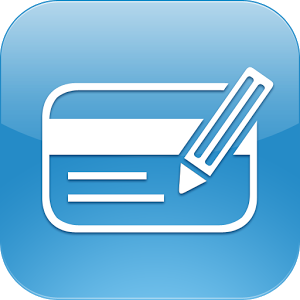How to track and manage your personal expenses
Introduction
Do you find your expenses exceeding your income (or allowance) every month? As a college student, I often find myself over-spending my allowance. While I do take up holiday jobs from time to time to make up for the deficit, it is still downright depressing to look at my bank account balance at the end of every month during the school term, because my expenses have once again exceeded my allowance.
The root cause of this overspending? Money management issues. Oftentimes, it isn't about how much you earn; rather, it's about how you live within your means. There are numerous examples of lottery winners mismanaging their new-found fortune and ending up in debt in just a few years.
It isn't easy to always live within your means. It requires lots of fiscal discipline, for the temptation of materialistic wants can get too overwhelming sometimes. Over the past few months, I have tried certain things to keep within my budget, and right now, I would like to share these tips with you.
Tip 1: Set aside a fixed percentage for saving
It is always important to set aside a small buffer for rainy days. Sometimes, things spoil, or people fall sick, and that can really mess up your budget in the absence of a buffer.
So, for example, you may wish to set aside 10% of your savings as a buffer. As soon as you receive your salary, move the 10% you have set aside into a separate bank account (preferably the one with the highest interest rates), and make sure that the money in the separate bank account isn't easily withdrawn (for one, you could keep the associated ATM card at home instead of leaving it in your wallet).
Without access to easy cash, the temptation to touch your savings will not be as great.
Tip 2: Transfer any excess money at the end of each month to the savings account
At the end of each month, any excess money that remains should be deposited into the savings account which I mentioned above. This gives you a 'clean slate' in your spending account at the start of every month, which helps ensure that your spending habits remain consistent from month to month.
Tip 3: Set a lower credit card limit
While some may suggest doing away with credit cards altogether, it isn't always the best option to take, given that there are certain privileges (such as cash back, or discounts) exclusive to credit cards.
Thus, one way to ensure that you don't just swipe-and-forget is to set a low credit card limit, proportional to your monthly income. This way, you will never chalk up huge credit card bills at the end of every month.

Do you keep track of your expenses using a phone app?
Tip 4: Use your phone to track your expenses
Tracking your personal expenses used to be a really tedious process. I remember trying to track mine several years ago, before the advent of the smartphone. I had to remember all the amounts I spent each day (or keep the receipts), then input them in an Excel spreadsheet at the end of the day. Soon enough, I got sick and tired of doing it and I just gave up.
Today, the situation is very much different, with the plethora of expense tracking applications available for smartphones. Currently, I am using Expense Manager, which is a free app available on Android. It is really intuitive and easy-to-use. I can add in my expenses in just a few clicks. Back when I was using an iPhone, I used to use PocketMoney LITE, which is also rather feature-rich. The full version will set you back about US$5.
Of course, when using such apps, you really need the fiscal discipline to follow through. At the start, I tended to forget certain expenses here and there. Over time, however, it became something like second nature: as soon as an expense occurs, whip out your phone and quickly key in the amount. You don't need to fill up any of the other fields yet: you can go back home and do it at your own leisure if you wish to. What's more important is ensuring that the expense is recorded.
When every expense is recorded, it makes you more likely to think twice before deciding to spend that money. In a sense, your expense management app encourages frugality by acting as a deterrence to spending.
To ensure fiscal discipline when tracking your expenses, you may wish to divide your remaining income after setting aside for your buffer savings by the number of days in a month. So, for example, you have a monthly salary of $2,000 for the month of June and you wish to allocate a 10% buffer. With the $1,800 that remains after setting aside $200 (or 10%), divide the $1,800 by 30 days. So, effectively, you can spend up to $60 per day.
Using this as a guideline, ensure that you spend no more than $60 per day.
Tip 5: Identify areas where you can save
If you find yourself often exceeding your daily allocated budget, start identifying areas where you can cut down. Instead of eating all three meals outside, why not try preparing one of your meals, such as breakfast, at home instead? Eating outside can get really expensive as compared to eating at home.
If possible, try to cut down your unavoidable expenses (such as your three meals and daily transport) to as low as possible, so you'll have room to splurge on other things once in a while.
Tip 6: Don't be too hard on yourself!
While proper fiscal discipline is important, it is also important not to be too hard on yourself. People often fail to achieve goals because they perceive them as being too difficult to achieve.
Many people, including myself, who first try tracking their own expenses, fail as they couldn't come to terms with the huge amounts they've been spending all the while and find it painful to record their every spending.
Thus, it would do you good to start by acknowledging that 'yes, indeed I've been spending a lot, but I must continue recording all my expenses so that I can identify areas where I can cut down my expenses, slowly but surely'.
If you've always been overspending, then, for a start, try breaking even every month before considering my suggestion of setting aside buffer savings.
It is also important to realise that our expenses tend to vary from month to month. In December, for example, most of us tend to spend more than we usually do due to all the gift-giving and turkey-feasting. In this case, looking at the bigger picture may be more beneficial. You may spend a lot in December, but the savings from the other months will make up for it.
Conclusion
I strongly believe that living within your means is the best way to proper money management. Hopefully, the above tips are of use to you and will guide you along the way to fiscal discipline.








